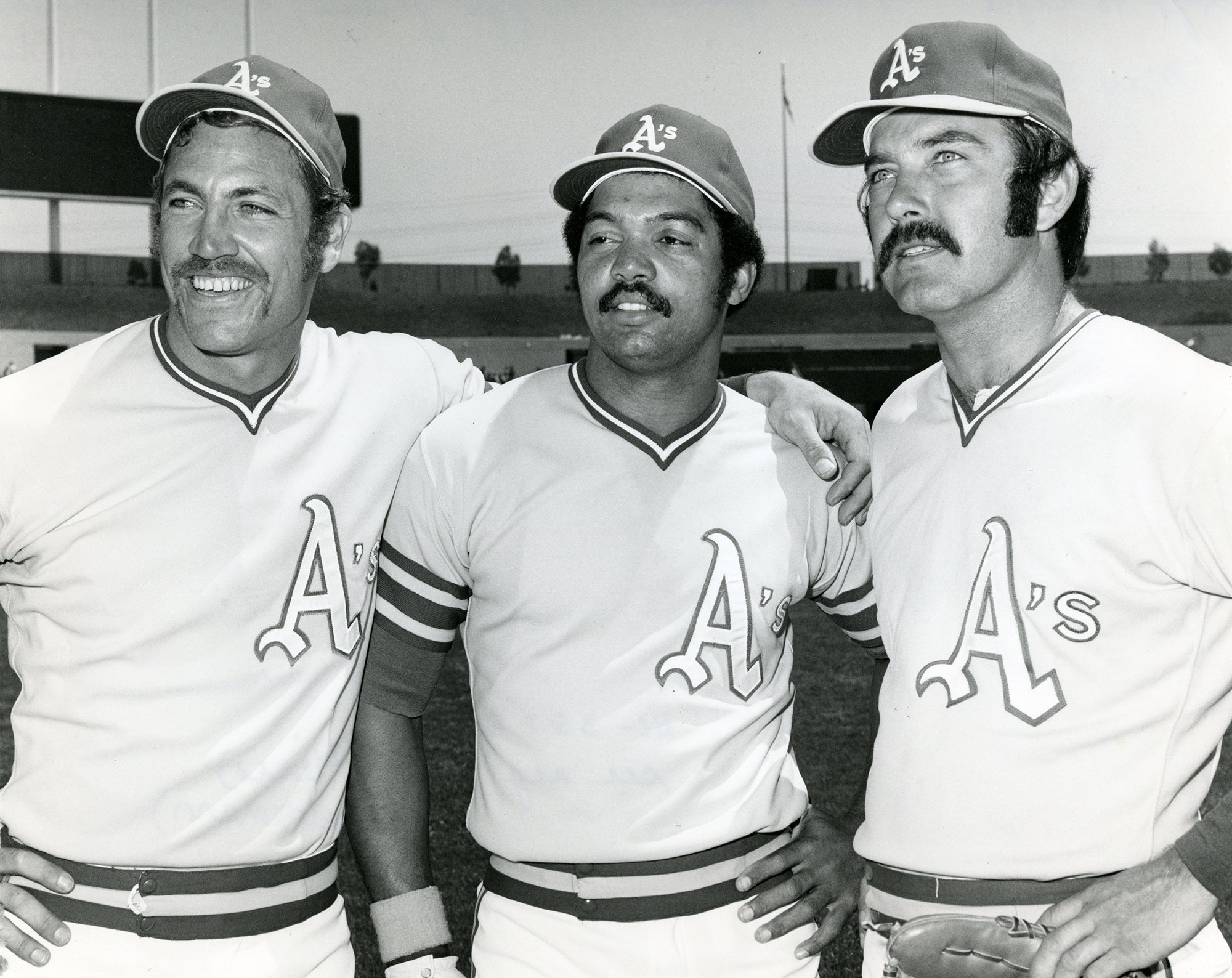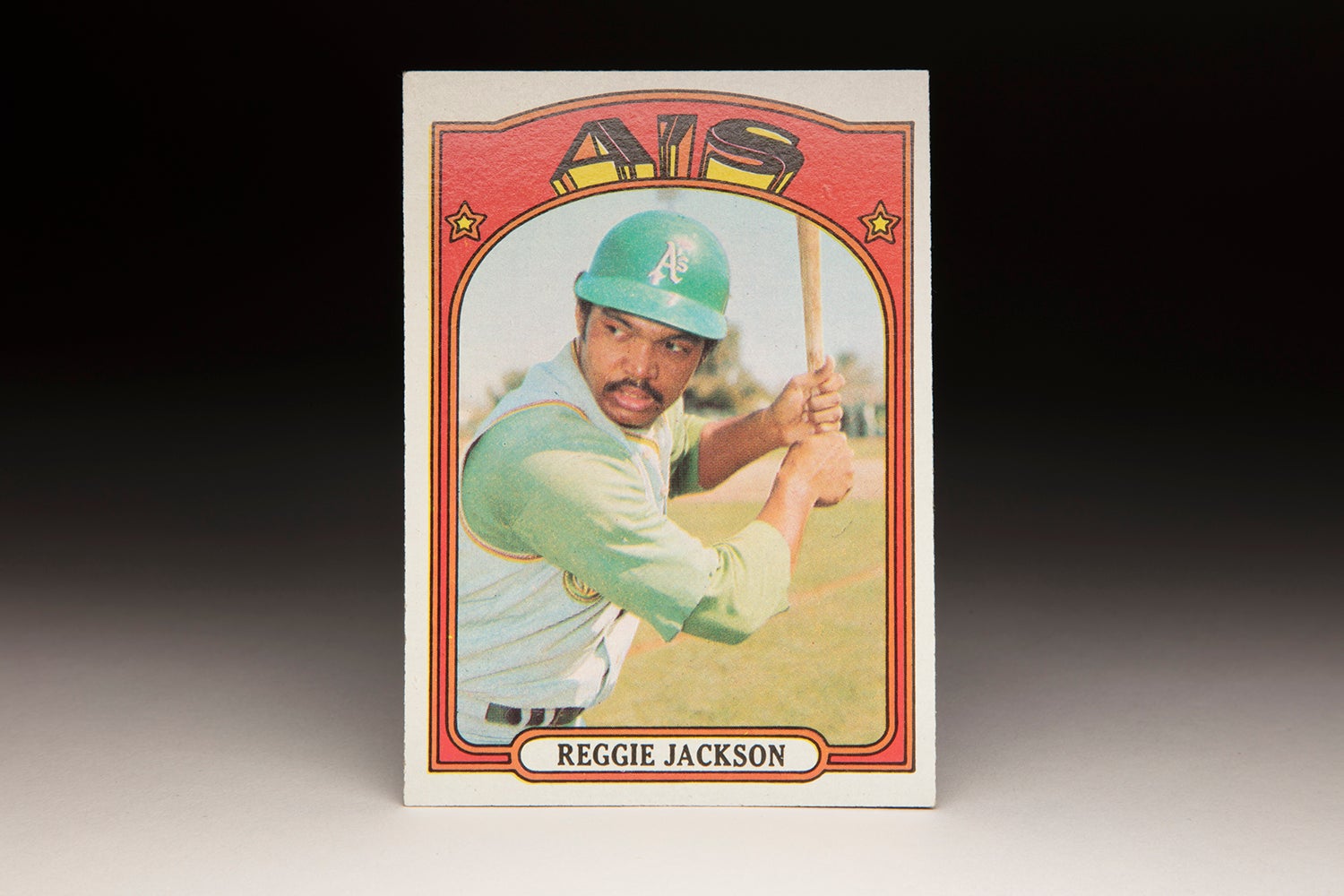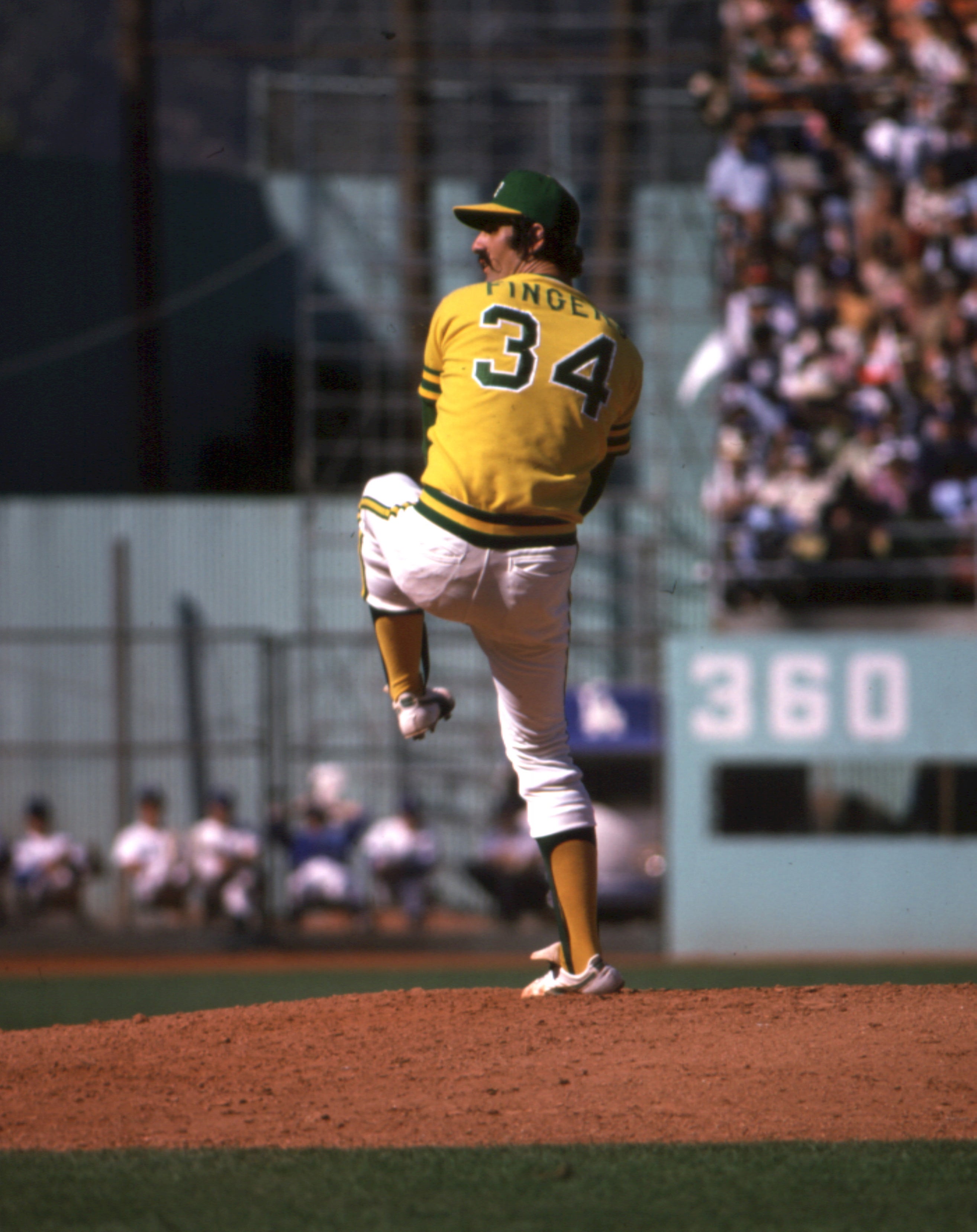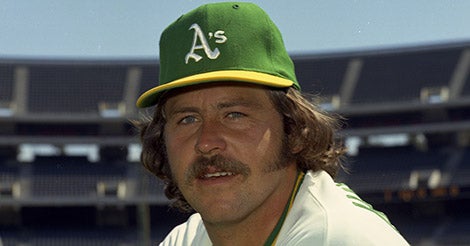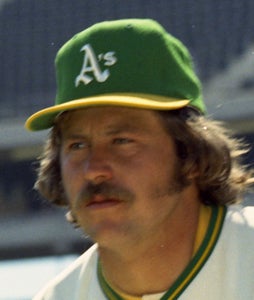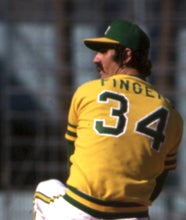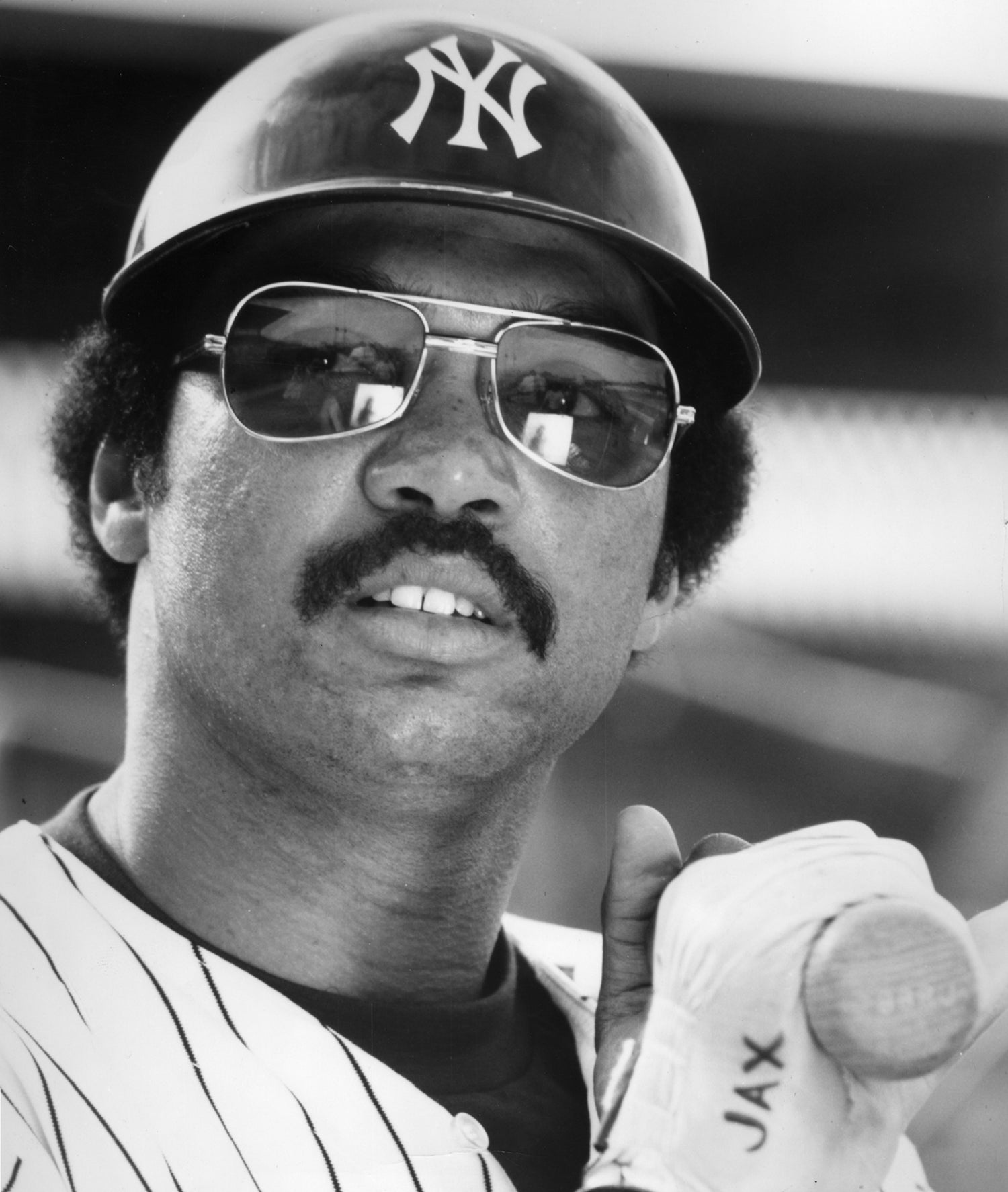- Home
- Our Stories
- A half-century later, Athletics’ dynasty remains unique
A half-century later, Athletics’ dynasty remains unique
The Oakland Athletics won the 1972 World Series, taking down the Reds in seven games. A year later, they beat the Mets in seven. Then, on Oct. 17, 1974, the A’s defeated the Dodgers in Game 5 to secure their third consecutive World Series title. They remain one of only two franchises to enjoy such profound success in a three-year span.
“Oh, how sweet it is! A third world championship in a row for our swinging baseball team,” read the front page of the Oakland Tribune. “The A’s are a great team of champions as their performance in the just concluded World Series so aptly proved. They are professional and entertaining in every sense of the word.”
Fans rejoiced as they had the previous fall, and the one before that, flooding Oakland’s streets to celebrate a string of championships so unprecedented it left writers at a loss for new words to praise the A’s.
“The A’s looked as fresh as ever in capturing the World Series once again,” wrote the Tribune’s Noel Lieberman. “But how do you capture the tumultuous celebration that followed — the third one in the last three years — without sounding trite?”
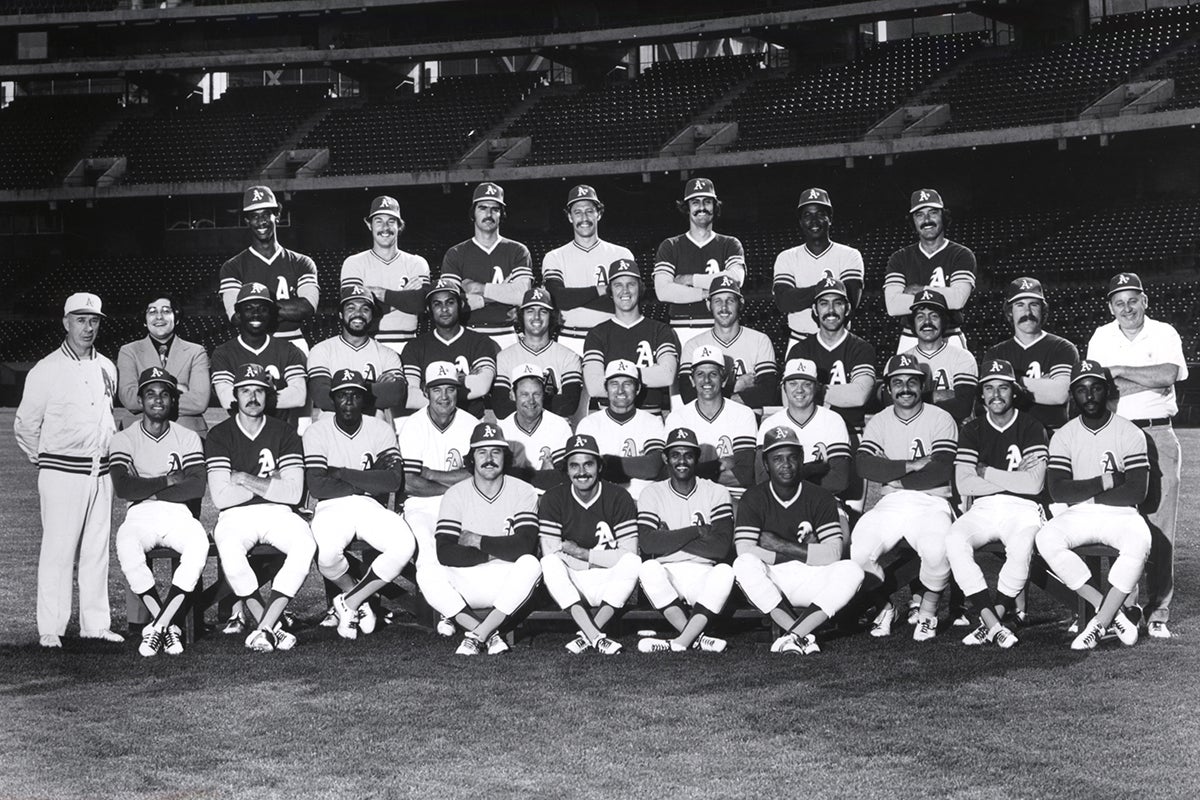
But the 1974 club didn’t feature all the same faces as champions past. Catcher/first baseman Gene Tenace, the 1972 World Series MVP who totaled 12 RBI in the previous two Fall Classics, tallied just two hits in the ‘74 postseason and was benched after Game 3 versus Los Angeles. Second baseman Dick Green hit .333 in the ‘72 Series but went 1-for-29 over the next two. Hall of Fame manager Dick Williams resigned after the ‘73 title. He, among others, clashed at times with team owner Charlie Finley.
One fan summarized his beloved ballclub on his way home from the Coliseum following the third championship. “The A’s represent individuality,” he told the Tribune. “They can fight with one another and still go out and win the big money. The A’s had it tonight. They had the poise and they had the style.”
Poise, style and, of course, stellar numbers aptly described the three future Hall of Fame players – Reggie Jackson, Catfish Hunter and Rollie Fingers – whose October performances were instrumental to the trio of titles.
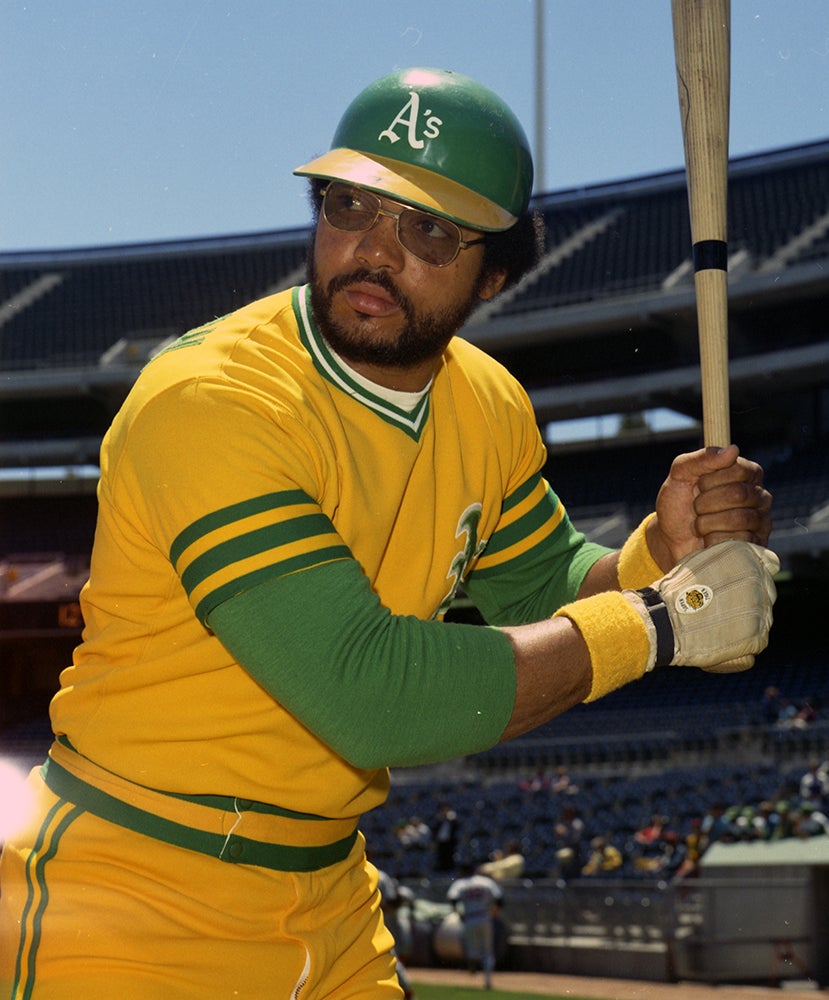
Jackson may have missed the 1972 Fall Classic due to a hamstring injury, but that hamstring went down a hero. In the Championship Series’ deciding Game 5 at Detroit, he drew a second-inning walk, stole second and reached third on a flyout. Then, Jackson and Mike Epstein flawlessly executed a double-steal to tie the game 1-1. Epstein drew a throw to second while Jackson scampered home, injuring himself in the process.
“When I had to hobble off the field, I cried,” Jackson told the Tribune. “Then I looked in the stands. And there, sitting next to our dugout, was Mr. Finley. And he was crying, too.”
The injury put Jackson on crutches and ended his postseason, but with a 2-1 win the A’s had seized their first pennant since 1931, when they called Philadelphia home.
“Reggie’s role in Oakland’s pennant victory did not go unnoticed,” wrote the Detroit Free Press, detailing the manager Williams’ clubhouse embrace of Jackson during the postgame celebration. “It had to be the most touching scene in the entire A’s celebration.”
Jackson got his chance in the World Series the following year – and to say he didn’t disappoint would be an understatement. After struggling — 3-for-21 with no walks, extra-base hits or RBI — in the 1973 ALCS, the soon-to-be American League MVP made himself a World Series MVP as well. He went 4-for-6 with a double, a triple and two RBI in Game 2, but the Mets took that one in 12 innings to even the series.
Then, after his A’s dropped two of three at Shea Stadium, Jackson returned to the Coliseum with a vengeance. In Game 6, the All-Star doubled twice off Tom Seaver, drove in two of Oakland’s three runs and scored the third himself. The next night, Jackson’s third-inning home run turned a two-run lead to four in an eventual 5-2 victory, securing a title for the A’s.
“I had a horsemeat start in the Series and knew if I don’t get some hits I’m going to be the goat because they expect so much from me,” he told the Tribune after Game 7.
“There is no doubt the better team won,” the Tribune wrote. “All the A’s needed was for Reggie Jackson to get hot with the bat. He sizzled Saturday. He sizzled Sunday. And Oakland was unstoppable.”
“Two years in a row, and we’ll make it three with your help,” Finley told Jackson, who was named series MVP after hitting .310 with six RBI.
Sure enough, Jackson reached base at a .474 clip in the 1974 World Series, hitting a double and a home run in the five-game triumph. “Mr. October” may not have been born until 1977, in pinstripes, but Jackson had already established himself a postseason legend in Oakland.
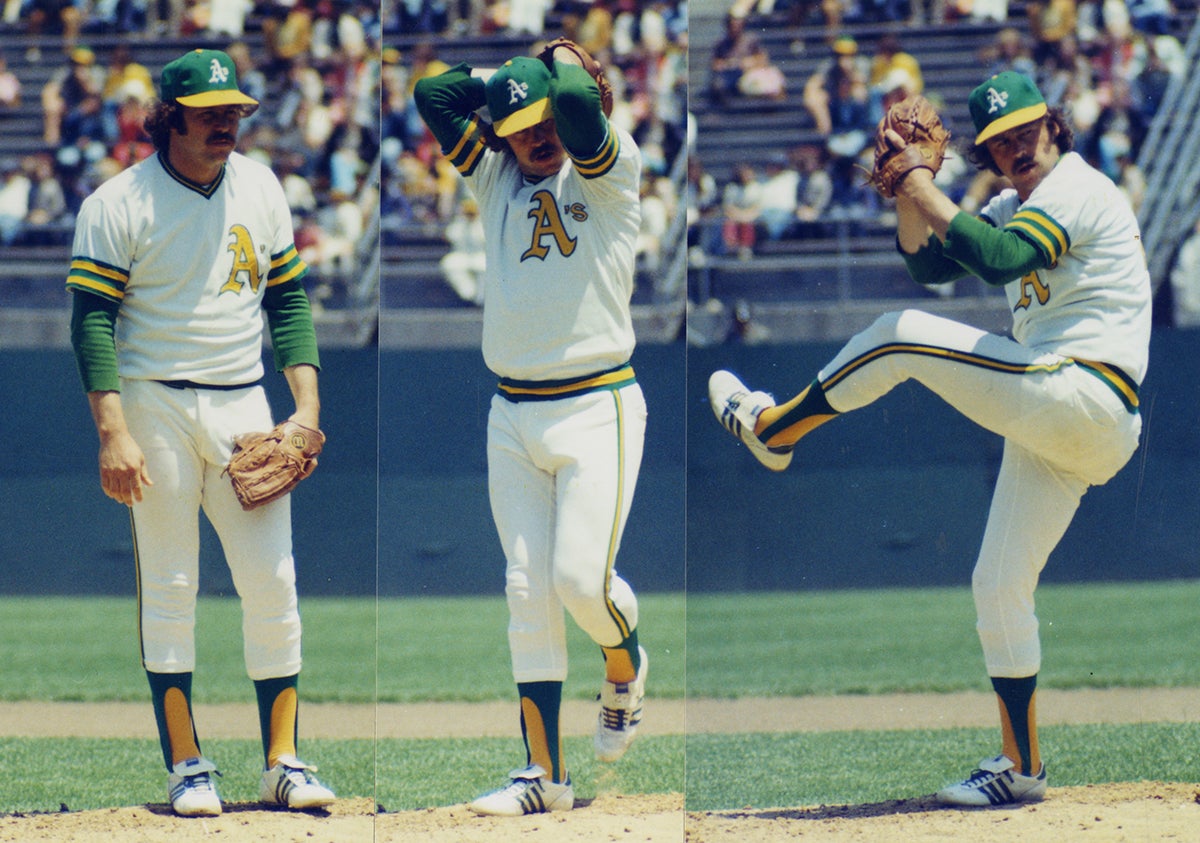
Hunter, meanwhile, built a remarkable postseason resume during that three-year stretch. Through three starts in October of 1972, the righty allowed three runs across 24 innings. In his fourth outing, Game 5 of the World Series, he recorded just 14 outs and yielded three runs, squandering a chance to close out the series. Two days later, eight outs of relief work earned Hunter the winning decision in Game 7 as Oakland took down Cincinnati. His ERA that postseason? 2.01.
The future Hall of Famer was even better in 1973, posting a 1.82 across four starts and winning each of his three decisions. The second, a shutout in Game 5 of the ALCS, sent Oakland back to the World Series. The third, a 7.1-inning effort in Game 6 versus New York, saw Hunter hold the Mets to one run while Jackson led the offense.
“Catfish is the man you want pitching if you’ve got to win,” Jackson said.
Hunter was “the least famed of the great hurlers in the game,” the Tribune wrote. “It isn’t his fastball. It isn’t his curveball. It’s deep inside Catfish Hunter. He’s a competitor and that’s why he allowed just four hits and beat the Mets.”
That competitor made his mark again in 1974 — his Cy Young Award-winning campaign. Facing Baltimore in the ALCS, he bounced back from a rough series opener to win another pennant clincher in Game 4 — Hunter didn’t complete the shutout, but he held the Orioles scoreless over seven frames. Come October, managers will use their most trusted arm in any situation. With two outs in the ninth and a 3-2 lead at Dodger Stadium in Game 1, Alvin Dark deployed Hunter to strike out Joe Ferguson and record his only career postseason save.
“I thought he was joking when he told me to warm up,” Hunter said of pitching coach Wes Stock, “but we don’t joke around on this club.”
The righty was back in a starting role for Game 3, yielding just one run as he pitched into the eighth and helped Oakland grab a 2-1 series lead. In all, across 80.1 innings of postseason work from 1972-74, Hunter went 7-1 with a 2.24 ERA. The future Hall of Famer appeared in 13 games and Oakland won 10 of them.
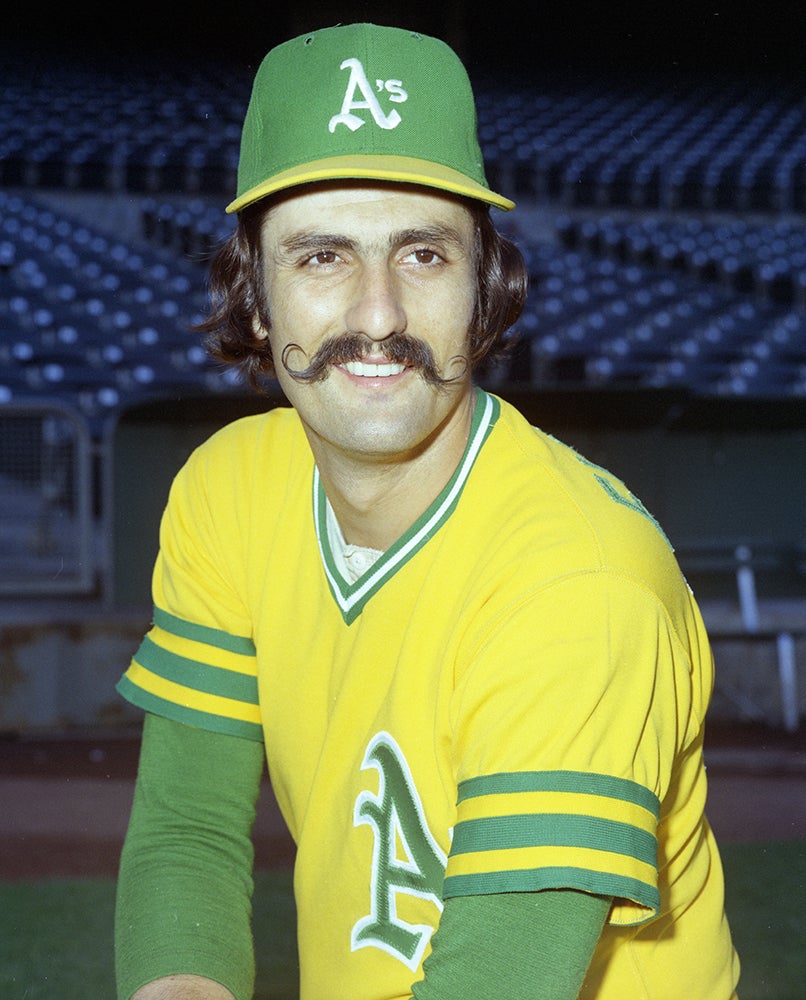
Fingers, whose combination of versatility, durability and dominance revolutionized relief pitching, entered 24 games during the three-championship run and, with a 1.55 ERA, eight saves and three wins in 46.1 innings (recording a win or save in 52 percent of Oakland’s victories during those three postseasons), had few blemishes. Every reliever dreams of closing out the World Series. Fingers did it twice.
But he almost didn’t get the chance in 1972, in Game 7 versus Cincinnati. Oakland led 3-2 with two outs in the ninth when Fingers hit Darrel Chaney with a pitch. Pete Rose was coming up and Dick Williams emerged from the dugout to replace Fingers with lefty flamethrower Vida Blue. But catcher Dave Duncan convinced Williams to stick with Fingers. The decision paid off with a flyout to left as Fingers retired Rose and ended the World Series.
Then, in 1974, Fingers battled through the fatigue of pitching three straight days and recorded a two-inning save in Game 5. The Dodgers managed a couple baserunners in the eighth but Reggie Jackson’s outfield assist, while backing up center fielder Bill North’s error, helped extinguish the threat.
“I was OK for an inning or two,” Fingers told the Tribune. “I was tired. I couldn’t control my breaking pitch tonight.”
Lacking his best stuff, Fingers still had enough to finish off yet another Oakland A’s championship. He was named World Series MVP, having pitched in each of the four victories while allowing only two runs. The last relief pitcher to win World Series MVP had been the Dodgers’ Larry Sherry in 1959.
The A’s paraded through Oakland the morning of Oct. 18, 1974, and Fingers was one of many to receive a hero’s welcome.
“Oakland celebrated its baseball heroes this morning with a noisy parade down Broadway, toasting the third consecutive World Series victory with lots of cheering, paper, music, and applause,” wrote the Tribune. “The crowd bellowed its appreciation even more loudly for Fingers, who repeatedly smiled beneath what is probably the most famous handlebar moustache in the Western World and waved two fingers in the V-for-victory sign above his head.
“Even Reggie Jackson showed up for this parade, coming along towards its end and nearly causing a riot as his fans mobbed his fancy car — a brand new, very black Porsche in which he rode alone, instantly recognizable — quite beyond the power of the police, who tried and, after a while, succeeded in pushing the crowd back again.”
These three legendary A’s had built a collection of World Series rings, and they’d eventually add bronze Hall of Fame plaques — Hunter in 1987, Fingers in 1992, Jackson in 1993 and Williams in 2008 — to their long lists of accolades.
Justin Alpert was a digital content specialist at the National Baseball Hall of Fame and Museum

